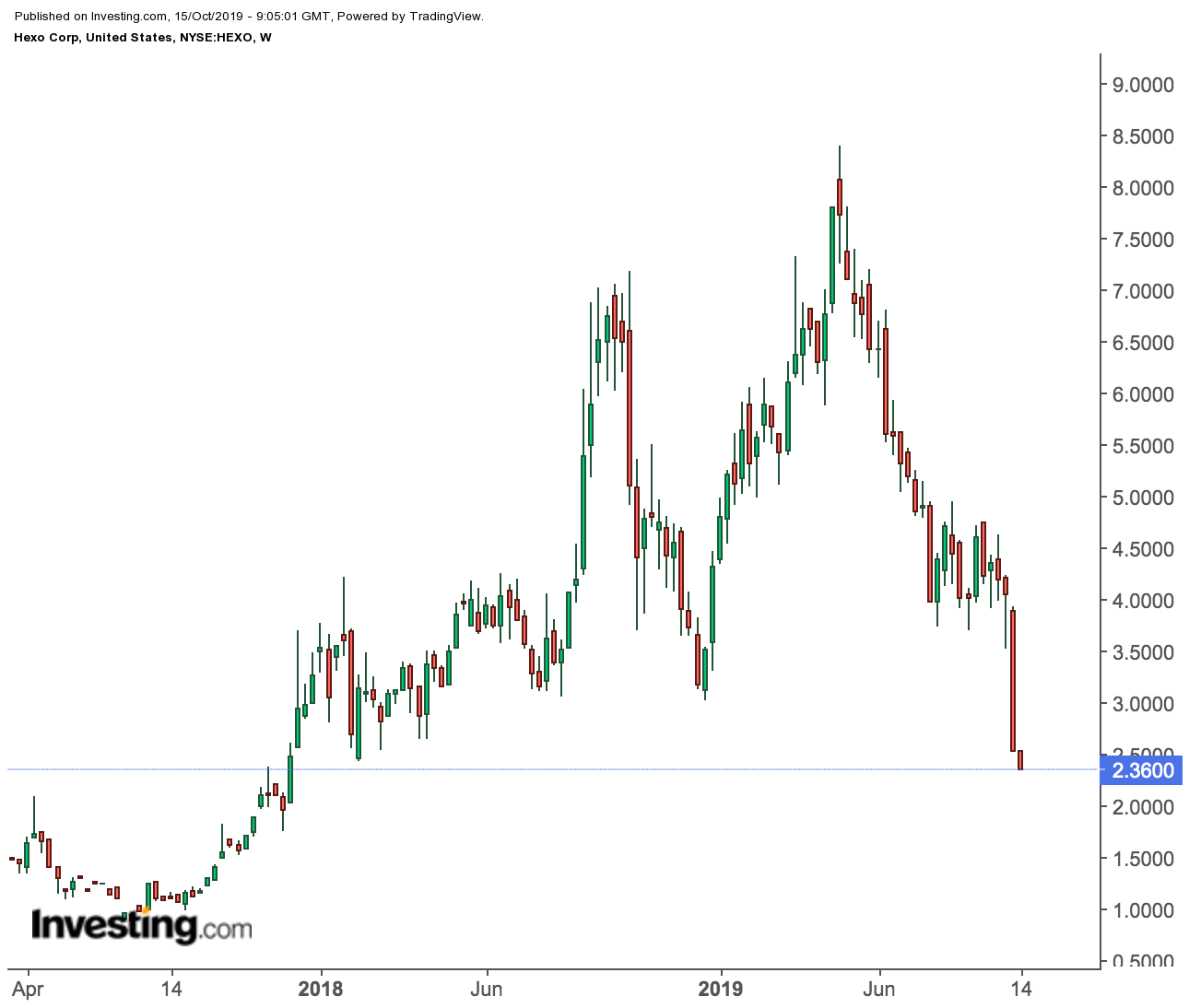Bruce Linton, arguably one of the biggest names in the cannabis industry, is making moves in what he believes is the next big space in the pharmaceutical sector – next-generation psychedelic-inspired medicines.
In an interview with Investing.com, the founder and former CEO of Canopy Growth (NYSE:CGC), (TSX:WEED) explained why he has become a private investor in a Canadian-based neuro-pharmaceutical company, Mind Medicine Inc., which aims to develop psychedelic inspired medicines, which, according to the latest research, have shown great potential in treating opioid addiction, depression and post-traumatic stress.
Linton called psychedelic-inspired medicine “the next frontier, where medicine is going to put a lot of effort and thought.”
Parallels With Cannabis Industry
Linton sees parallels with the cannabis sector, explaining that best practices and governance will play a big role.
The company, also known as MindMed, last month announced it has closed a strategic investment round, raising US$6.2 million (C$8.2 million) in funding. Linton is just one of the big-name investors it has attracted. The former Canopy Growth CEO said he has recently bought an “8-to-10% stake” in the company, what he described as “a serious six-figure, not-quite-seven-figure” investment. He was also named to the board of directors.
But Psychedelic Meds Are Different
Another big-name investor is Canadian businessman Kevin O’Leary, who is perhaps best known as a cast member of ABC’s Shark Tank. Although he shares Linton’s enthusiasm for the medical breakthrough potential for psychedelic-inspired treatments for opioids and other addictions, he embraces the differences.
O’Leary hasn't invested in any cannabis company, explaining he never wanted to be part of the recreational side of that sector. Psychedelics is different, he said during an interview from Las Vegas recently. MindMed has no interest in the recreational market. It is focusing solely on FDA-approved medicines.
“That I can endorse,” O’Leary said. “That I can invest in.”
“The opioid crisis is affecting millions of American families and it is costing the country $500 billion (C$661.5 million) a year. We owe it to those families to explore all options and find a solution,” O’Leary explained. He said:
“I invested in MindMed because they are approaching psychedelics through rigorous science and FDA trials. The psychedelics space is vastly different than cannabis and legalized recreational use will never happen; psychedelics need to be approved as FDA drugs.”
The opioid crisis is a huge societal problem, he said. But psychedelics is doing something else:
“This is creating medicine that will help people.”
Sizeable Position
O’Leary has taken what he describes as a “sizeable position” in the company, but refused to be specific.
According to MindMed’s founder and director, JR Rahn, the company is currently preparing for two Phase II trials that will begin in 2020.
“It’s the ambition of the company to be a public company by the end of the year,” he said in an interview from Toronto.
The focus of the company as been the 18-MC molecule, which it has synthesized from the psychedelic ibogaine. It is a non-hallucinogenic substance. The aim is to use it as a treatment for opioid addiction. Once it receives FDA approval, the company will then look at other markets.
“There is a renaissance opportunity here,” Rahn said, adding:
“There is a sea change on how we look at these substances as a therapeutic medicine that creates wellness.”
And he is looking for people like Linton to help steer the company to that end. “Bruce is a pioneer. He created the cannabis industry,” Rahn said. “There is a lot of learning on that history.”
Hexo Shares Plummet On Revenue Revisions
Shares of Hexo Corp (NYSE:HEXO), (TSX:HEXO) lost 6.72% in New York on Monday, continuing its losses from last week after the Quebec-based cannabis grower announced a fourth-quarter revenue warning in advance of its next financial earnings report.
In an update last Thursday, Hexo said its fourth-quarter revenue will come in somewhere between C$14.5 million (US$10.96 million) and C$16.5 million (US$11.04 million). That is a substantial reduction from predictions last June that had Hexo’s fourth-quarter results showing revenues that would be double its third-quarter figures of C$13 million (US$9.83 million).

The reaction was swift. Hexo’s shares dropped almost 23%. Markets in Canada were closed Monday for the Thanksgiving holiday.
Last week, Hexo also withdrew its forecast for fiscal 2020 results. It had previously expected fiscal 2020 net revenues to hit C$400 million (US$302.36 million). The withdrawal of the forecast also comes about one week after the company’s chief financial officer Michael Monahan resigned.
Hexo’s next earnings report will be released on Oct. 24.
